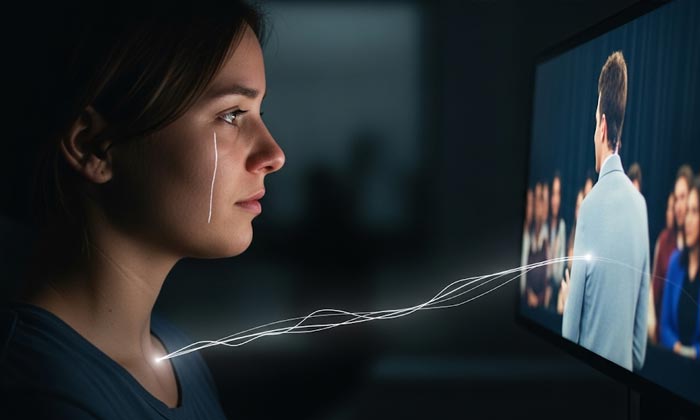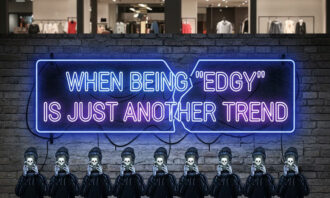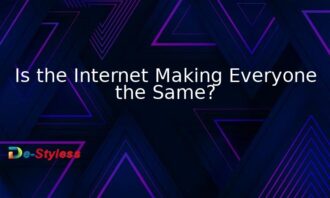In today’s digital world, social media platforms, streaming services, and interactive content have created a new form of relationship – the parasocial relationship. These one-sided relationships, where fans feel a connection with celebrities, influencers, or media personalities, are becoming more prevalent. Parasocial relationships give the illusion of intimacy, where fans believe they share a close, personal bond with these figures, even though the interaction is not mutual. But what is the true nature of these relationships, and how do they affect the way we connect with others? This article explores the concept of parasocial relationships, how they create the illusion of intimacy, and the implications of such relationships in our daily lives.
In recent years, the rise of social media platforms like Instagram, YouTube, and TikTok has allowed fans to interact with their favorite stars in real-time, which amplifies the sense of closeness. However, despite the apparent intimacy, these relationships remain one-sided, leaving many to question the authenticity of the connections formed. To understand the dynamics of parasocial relationships, we must delve into the psychology behind them, their social functions, and their impact on individuals and society.
What is a Parasocial Relationship?
A parasocial relationship is a one-sided relationship where one person extends emotional energy, interest, and time toward another person (usually a media figure) who is completely unaware of the individual’s existence. This term was first introduced by sociologists Donald Horton and Richard Wohl in 1956 to describe the bond that viewers develop with media figures like television hosts or actors. Over time, the rise of social media influencers, vloggers, and content creators has expanded the scope of parasocial interactions, allowing fans to interact with their idols in ways that were previously impossible.
Despite the lack of mutual recognition, fans often experience feelings of attachment, loyalty, and a sense of personal connection with the figure they follow. This emotional investment can lead fans to feel as though they know the celebrity personally, blurring the lines between reality and fantasy. But, as much as these connections feel real to the fans, they are fundamentally one-sided, with the celebrity or influencer typically unaware of the fan’s existence.
The Illusion of Intimacy in Parasocial Relationships
One of the most compelling aspects of parasocial relationships is the illusion of intimacy they create. Social media platforms are designed to offer a sense of closeness between content creators and their audiences. Influencers often share personal moments, behind-the-scenes content, and intimate details of their lives with their followers, giving the impression of friendship or familial closeness. This, in turn, fosters a sense of intimacy among fans, who believe they are privy to the personal lives of these figures.
1. Media Personalities as Relatable Figures
Social media influencers and celebrities often cultivate a “relatable” image to make themselves appear more accessible and genuine to their followers. By sharing everyday moments, struggles, and triumphs, they invite their fans into their personal lives. This transparent portrayal of vulnerability makes fans feel as though they are part of an inside circle, contributing to the illusion of a close, personal relationship.
2. Constant Communication and Interaction
The ability to communicate directly with celebrities or influencers through comments, likes, and direct messages further enhances the feeling of connection. When fans see that their comments are liked or responded to, it reinforces the belief that they have a personal connection with the person they follow. Even though these interactions are often superficial and do not involve deep personal engagement, they can evoke strong feelings of closeness in the fan, creating the illusion of intimacy.
3. The False Sense of Reciprocity
While parasocial relationships are inherently one-sided, the feeling of reciprocity can be a powerful illusion. Fans often perceive that their favorite influencer or celebrity cares about them because of their frequent engagement or emotional tone. This sense of reciprocation can make fans feel valued and emotionally invested, despite the fact that the relationship remains unbalanced. The more time a fan spends engaging with a celebrity’s content, the more personal and intimate the relationship seems, even though it is entirely based on curated, one-sided interaction.
The Psychological Effects of Parasocial Relationships
While parasocial relationships can feel real and emotionally fulfilling, they may have psychological consequences for individuals who become overly invested in them. These relationships can offer comfort, companionship, and a sense of belonging, but they may also lead to certain challenges.
1. Escaping Reality
Parasocial relationships often serve as an escape for individuals who may feel disconnected or lonely in their real-life relationships. The comfort of following someone who seems to genuinely care or share personal details can offer a temporary sense of connection. However, when the individual becomes overly dependent on these one-sided relationships, it can lead to an avoidance of real-life social interactions and a lack of fulfillment in face-to-face relationships.
2. Unrealistic Expectations
The emotional investment that fans put into parasocial relationships can sometimes lead to unrealistic expectations of personal connection. Since parasocial relationships are not reciprocal, fans may begin to expect attention or acknowledgment from the media figure they follow. This can lead to disappointment or frustration when the influencer or celebrity does not meet these unspoken expectations, despite the fact that the relationship is not mutual.
3. Identity and Self-Worth
For some, parasocial relationships may become a central aspect of their identity. The intense emotional attachment to a media figure can sometimes replace a person’s sense of self-worth or belonging, making them feel validated through the perceived approval of the celebrity. This can create unhealthy dependency on the relationship, as the individual’s sense of value becomes tied to the interaction with a figure who does not truly know them.
The Social Function of Parasocial Relationships
Parasocial relationships can also serve important social functions, both for the individual and society as a whole. For individuals, these relationships may provide an outlet for emotional expression or social support. The sense of belonging and connection to a celebrity or influencer can offer comfort in times of stress or hardship.
On a broader societal level, parasocial relationships can help shape public perceptions of celebrities and influencers. As fans invest in these relationships, they can influence the way media personalities are portrayed in the media and how they engage with their audience. The illusion of intimacy can also drive engagement and loyalty, which is highly valuable in the world of digital marketing and entertainment.
Conclusion
Parasocial relationships, while seemingly harmless, are built on an illusion of intimacy that can have lasting psychological and social effects. These one-sided relationships offer a sense of connection and belonging, but they are fundamentally different from real, reciprocal relationships. Understanding the dynamics of parasocial relationships is essential in navigating the modern digital landscape, where the lines between reality and curated personas are often blurred. While parasocial relationships can provide comfort and emotional fulfillment, it’s crucial to recognize their limitations and the importance of nurturing real, meaningful connections with others.
Glossary
- Parasocial Relationship: A one-sided relationship where a person invests emotional energy in a media figure who is unaware of their existence.
- Illusion of Intimacy: The false belief that a close, personal bond exists between a fan and a media figure, despite the relationship being unreciprocated.
- Reciprocity: In the context of relationships, reciprocity refers to mutual exchanges of emotional support and engagement, which are often absent in parasocial relationships.
- Influencers: Individuals who have built a large following on social media and have the ability to impact the opinions, behaviors, and decisions of their audience.
- Emotional Investment: The amount of emotional energy a person invests in a relationship, which in parasocial relationships is typically unreciprocated.





